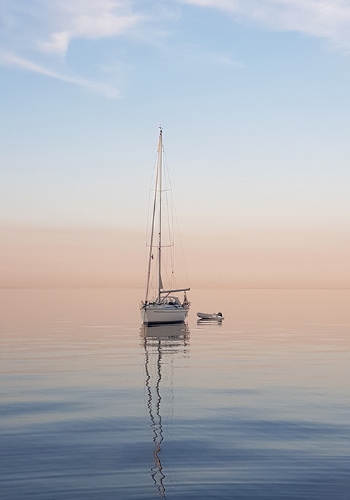The good news is Hurricane Florence has been downgraded, but the devastation is still going to be catastrophic mostly due to winds and gigantic storm surges. Hurricane Florence is heading towards the eastern seaboard states of North & South Carolina and Virginia. If you’re heading to the southern navigation territories or your boat is in a hurricane zone, here are some tips for boat survival.
Hurricane Florence continues to move towards land bringing sustained winds up to 130 mph. Affected areas could receive up to 30 in of rain, or 12 feet of life-threatening storm surges along the coast. According to CNN reports, weather.us meteorologist Ryan Maue, the tropical cyclone is expected to unload 10 trillion gallons of rainfall in North Carolina,
We encourage everyone to follow evacuation orders and secure their homes, trailers, cars and boats. Remember that driving or walking through running water can be dangerous. Learn your evacuation zone, listen to your local weather and emergency advisories, confirm travel reservations, avoid coastal and mountainous areas (risk of flooding and landslides), and adhere to all advice issued by local authorities.
Preparing your boat for a hurricane zone
Southern navigation hurricanes are among the most destructive phenomena of nature. Advance planning will keep your boat asset intact and improve the chances of survival. It’s a good idea to conduct a dry run on your hurricane plan. Preparation needs to be done in advance of 48 hours prior to the storm hitting as later, it’ll be too dangerous to secure your boat.
- Inventory the property on your boat, preferably with a video.
- Remove everything of value or items that can tear off the boat such as legal documents, insurance policy, radio license, fishing gear, sails, fuel, dinghy or tender, radios and other valuables.
- Get off the open water and as far away from the storm as possible.
Securing your boat in the water
- Use your marina as a resource for hurricane preparedness.
- Tie your boat in the middle of the slip, keeping spring and dock lines as long as possible. This is for the tide surge.
- Cover all lines with chafe protectors at points where the line is likely to wear.
- Put out extra fenders and fenderboards (the more the better).
- If possible, move your boat to a canal or a hurricane hole.
- If your boat is being anchored in water outside a marina, check with your insurance company as your insurance may be null and void, so this may not be an viable option.
Securing your boat out of the water
- Boats stored on land fair better than boats stored in the water. If you have the option to remove your boat from the water, transport it and secure it at your home. Placing smaller boats putting in the garage is a good strategy. Otherwise, secure your boat and trailer to a sturdy tree or a deadman anchor.
- If you have an outboard motor, you can increase your boat’s weight by filling it with fresh water. Strip off any items that can be torn loose and use wood blocks.
- If you have a jack-stand, strap it to the ground to stop it from blowing over.
Inspecting your boat after the hurricane
- Only when it’s safe to do so, secure your boat to protect it from looters or vandals.
- Protect your boat from additional weather exposure. No matter what the condition, clean and dry out the boat.
- If engines are wet or they’ve been submerged, flush out with fresh water before adding any fuel.
- Document damage with photos and contact your insurance broker.
Studies and after-storm results show that advance planning provides the best outcome for your boat to survive a hurricane. Take the time to be prepared.
If you are taking your boat to the southern navigation territories between June 1 and November 30 you will need to file a Hurricane Form and Itinerary for your insurance coverage. Call your Pacific Marine Broker today for more assistance in preparing for catastrophic weather.
Resources:
Hurricane planning course by Boat US Foundation
Preparing your boat for a Hurricane Video by West Marine
Preparing for a Hurricane, Video prepared by Florida Sea Grant University of Florida








